Power Struggle Delays Prisoner Release
A commentary by Larry Jagan
2011-10-05
Burmese politics have always been a cat and mouse
affair. Those in power seeking change have always had to tread lightly.
And nothing has changed under the new political system. If anything,
things have got worse, as the power is more diffuse than under the naked
military rule of the past.
But the new regime must show its true colors soon. It is no use shouting to the world that things have changed if there are no concrete changes to support that call. Of course the government’s priorities will always be different—and they will never want to be seen bowing to international pressure.
But the country’s own parliament has called for the prisoners’ release, and this move has an important champion within the establishment in the speaker Thura Shwe Mann. Also, it is widely known that Aung San Suu Kyi discussed the issue with Aung Kyi during their meeting on Friday.
In fact the decision to release several hundred political prisoners, including the comedian Zaganar, has been taken in principle, according to senior government sources in Naypyidaw. They will be released in three batches of more than a hundred each time, I am told. So what’s the holdup?
One obstacle is that the shadow of the old man—former junta leader Than Shwe—continues to dog the new administration of Thein Sein. On two important occasions during the last year he adamantly opposed the release both of political prisoners and of Khin Nyunt’s jailed military intelligence people. So if there is a legacy, it is “Don’t upset the country’s stability by freeing more political activists.”
This is the position of the hardliners who hark back to the days of stable authoritarian rule and are lurking in the background ready to pounce if Thein Sein appears to go too far, too fast. Their greatest concern is that the 88 Generation student leaders, if freed, would resume their campaign against the government.
While the issue of political prisoners may seem simple, in the minds of the government it is more complicated. Everything is interlocked in their plans, and the big issue now is the forthcoming by-elections, possibly in November.
Thein Sein, according to sources in the capital, would like the National League for Democracy to contest them, and possibly have the Lady run too. This would be remotely possible only if the electoral laws were changed, according to senior members of the party.
This is yet another sticking point, for the hardliners are also adamant that there be no change.
Thura Shwe Mann, according to sources close to the speaker, is prepared to change those laws. Thein Sein is more cautious, though he’s not opposed. The other leaders of the ruling USDP would be furious if changes are made to the laws, as this would appear, at least to them, to be accommodating Aung San Suu Kyi.
The old hardliner and former Than Shwe confidant Aung Thaung has been campaigning behind the scenes to make sure there are no political changes, including the release of political prisoners. According to sources in the government, he has even tried to get Than Shwe to come out of retirement, but so far to no avail.
While Burma’s political future remains in such a precarious balance, nothing is likely to happen quickly. The worry that Than Shwe may decide to return to take over weighs heavily on the liberal-minded ministers who support Thein Sein.
Than Shwe and army chief Min Aung Hlaing have agreed that if things go awry under the new government, the military will seize power again in a coup, according to informed sources in the army. In effect, this option is written into the 2008 constitution.
The game plan then would be to abolish the parliament, ban the existing political parties, form new army-based organizations, and have fresh elections—causing a full political reversal.
Some ministers believe that Thein Sein’s government is the last chance for Burma to achieve democracy within this decade. “If we fail, we’ll end in jail,” said one minister recently. “Then there will be even more political prisoners.”
Burmese politics is like a game of chess—a game leading so far not to checkmate but to stalemate. Thein Sein needs support, and Aung San Suu Kyi and the NLD could prove to be the key to Burma’s future.
There is resistance in the party to cooperating too fully with the new regime. But it is clear that the Lady herself is willing to side with Thein Sein, provided he turns his rhetoric into concrete action.
In the short run, this can be demonstrated only by the release of political prisoners. While it is clear that any release must wait for the end of the current parliamentary session, it must happen as soon as possible after that.
Larry Jagan is a former BBC regional correspondent who is based in Bangkok and has extensively covered Burma issues.
But the new regime must show its true colors soon. It is no use shouting to the world that things have changed if there are no concrete changes to support that call. Of course the government’s priorities will always be different—and they will never want to be seen bowing to international pressure.
But the country’s own parliament has called for the prisoners’ release, and this move has an important champion within the establishment in the speaker Thura Shwe Mann. Also, it is widely known that Aung San Suu Kyi discussed the issue with Aung Kyi during their meeting on Friday.
In fact the decision to release several hundred political prisoners, including the comedian Zaganar, has been taken in principle, according to senior government sources in Naypyidaw. They will be released in three batches of more than a hundred each time, I am told. So what’s the holdup?
One obstacle is that the shadow of the old man—former junta leader Than Shwe—continues to dog the new administration of Thein Sein. On two important occasions during the last year he adamantly opposed the release both of political prisoners and of Khin Nyunt’s jailed military intelligence people. So if there is a legacy, it is “Don’t upset the country’s stability by freeing more political activists.”
This is the position of the hardliners who hark back to the days of stable authoritarian rule and are lurking in the background ready to pounce if Thein Sein appears to go too far, too fast. Their greatest concern is that the 88 Generation student leaders, if freed, would resume their campaign against the government.
While the issue of political prisoners may seem simple, in the minds of the government it is more complicated. Everything is interlocked in their plans, and the big issue now is the forthcoming by-elections, possibly in November.
Thein Sein, according to sources in the capital, would like the National League for Democracy to contest them, and possibly have the Lady run too. This would be remotely possible only if the electoral laws were changed, according to senior members of the party.
This is yet another sticking point, for the hardliners are also adamant that there be no change.
Thura Shwe Mann, according to sources close to the speaker, is prepared to change those laws. Thein Sein is more cautious, though he’s not opposed. The other leaders of the ruling USDP would be furious if changes are made to the laws, as this would appear, at least to them, to be accommodating Aung San Suu Kyi.
The old hardliner and former Than Shwe confidant Aung Thaung has been campaigning behind the scenes to make sure there are no political changes, including the release of political prisoners. According to sources in the government, he has even tried to get Than Shwe to come out of retirement, but so far to no avail.
While Burma’s political future remains in such a precarious balance, nothing is likely to happen quickly. The worry that Than Shwe may decide to return to take over weighs heavily on the liberal-minded ministers who support Thein Sein.
Than Shwe and army chief Min Aung Hlaing have agreed that if things go awry under the new government, the military will seize power again in a coup, according to informed sources in the army. In effect, this option is written into the 2008 constitution.
The game plan then would be to abolish the parliament, ban the existing political parties, form new army-based organizations, and have fresh elections—causing a full political reversal.
Some ministers believe that Thein Sein’s government is the last chance for Burma to achieve democracy within this decade. “If we fail, we’ll end in jail,” said one minister recently. “Then there will be even more political prisoners.”
Burmese politics is like a game of chess—a game leading so far not to checkmate but to stalemate. Thein Sein needs support, and Aung San Suu Kyi and the NLD could prove to be the key to Burma’s future.
There is resistance in the party to cooperating too fully with the new regime. But it is clear that the Lady herself is willing to side with Thein Sein, provided he turns his rhetoric into concrete action.
In the short run, this can be demonstrated only by the release of political prisoners. While it is clear that any release must wait for the end of the current parliamentary session, it must happen as soon as possible after that.
Larry Jagan is a former BBC regional correspondent who is based in Bangkok and has extensively covered Burma issues.





















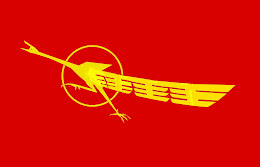





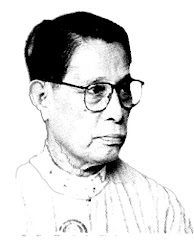


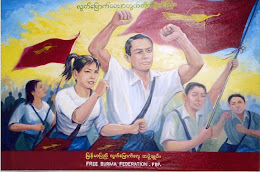





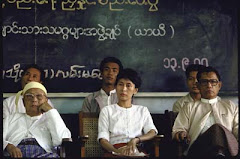

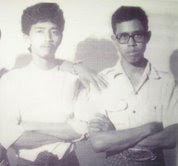

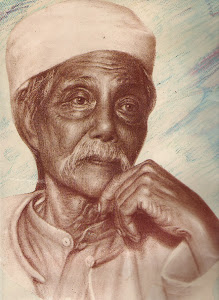
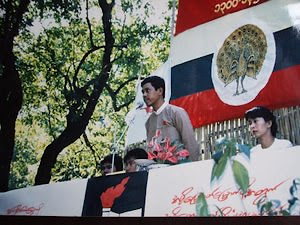
No comments :
Post a Comment